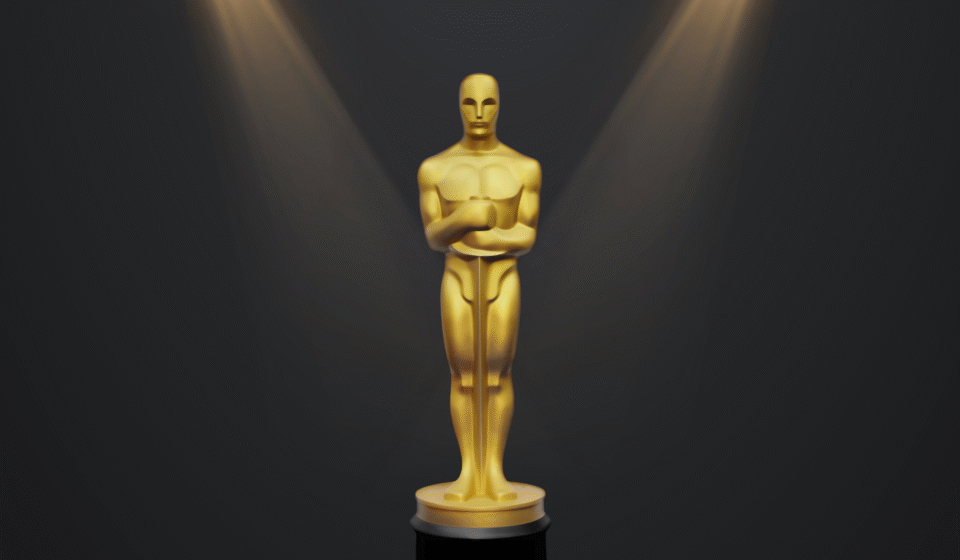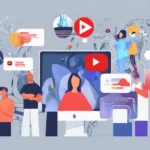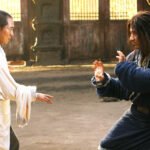
What if the Next Oscar-Winning Director Wasn’t Human?
In This Post ...
It sounds like a sci-fi plot twist—but it might be closer than we think.
In recent years, artificial intelligence has quietly stepped into the world of filmmaking. From generating storylines and dialogue to creating visuals, editing trailers, and even crafting synthetic actors, AI is becoming more than just a tool—it’s becoming a co-creator.
So, can an AI-generated movie win an Oscar?
The answer isn’t just about awards—it’s about what kind of future we’re walking into, and who gets to walk in with us.
A Brief History of Storytelling Innovation
Storytelling has always evolved with the tools of its time.
From ancient cave paintings to oral traditions, from printed books to live theater, from black-and-white silent films to the age of streaming—every step forward was met with curiosity, skepticism, and eventually, transformation.
Now, artificial intelligence joins that lineage. Not to replace human creativity, but to enhance it—making the act of creating more accessible, collaborative, and far-reaching than ever before.
How AI Could Reshape the Film Industry
If an AI-generated film were to be nominated for, or even win, an Oscar, it would be more than a milestone—it would be a paradigm shift.
Here’s what that shift could bring:
- Accessibility: Tools that were once reserved for major studios—like complex visual effects, high-end animation, or multi-language dubbing—are now at the fingertips of independent creators.
- Speed: Storyboarding, scriptwriting, and even post-production can happen in days instead of months, allowing ideas to move faster from concept to screen.
- Collaboration: Filmmaking becomes less about geography and budgets, and more about imagination and input—anyone with a story can now participate.
But such changes also raise important questions.
The Challenges We Must Navigate
As with any powerful innovation, AI in filmmaking doesn’t come without its share of complexity.
- Ownership: Who gets the credit when a story is co-created by a human and an algorithm?
- Authenticity: Can AI understand the emotional depth, nuance, and lived experiences that shape human storytelling?
- Ethics: What guardrails do we need to ensure responsible use of AI-generated voices, faces, and scripts?
These are ongoing conversations—ones that require input from artists, technologists, audiences, and institutions alike.
A Bigger Table, Not a Smaller Stage
One of the most important things to remember is this: new content doesn’t have to compete with existing content.
Innovation doesn’t mean displacement—it means expansion. The emergence of AI-powered creativity isn’t about pushing traditional creators out, but about bringing more voices in. It’s about growing the pie, not cutting it differently.
Today’s studios and production houses don’t have to view these new creators as competition—they can see them as collaborators, as fresh sources of IP, talent, and untapped perspectives. Conversely, emerging creators can now build their ideas with more confidence, more tools, and a chance to be seen.
This two-way bridge is what defines the next generation of storytelling—and it’s already happening.
From Ideas to Reality: The Rise of AI-Powered Creative Platforms
Across the creative landscape, platforms are emerging that make it easier for creators to not only generate content, but also secure it, promote it, and connect with others in meaningful ways. These platforms act as both toolkits and communities—spaces where new storytellers can experiment, and where established players can discover and engage with fresh ideas.
Within this new ecosystem, creators are turning rough ideas into visual storyboards, building cinematic trailers with AI assistance, and protecting their intellectual property as they grow their audience. Whether it’s through open communities or more curated environments like GoSkripto, these ecosystems are quietly redefining how stories take shape and find their way to market.
What’s emerging isn’t a divide—it’s a dynamic space where technology meets creativity, and where everyone—from first-time screenwriters to top-tier producers—can participate.
Key Takeaways
- AI-generated films are not just possible—they’re already here, and they’re evolving rapidly.
- If one wins an Oscar, it would signal a major shift toward recognizing the role of technology in storytelling.
- This shift opens doors for both new and established creators to collaborate, not compete.
- The evolution of content creation is part of a long and rich tradition—from cave paintings to AI-enhanced cinema.
- Community-based platforms and tools are empowering creators to turn ideas into finished products, making professional-level storytelling more inclusive than ever before.
What’s Next?
Whether you’re a creator looking to explore AI tools, a studio curious about new ideas, or a brand seeking authentic partnerships—there’s a place for you in this growing creative movement.
Share your thoughts in the comments: What excites you—or concerns you—about the rise of AI in film?
Follow us at GOSKRIPTO for more insights on the future of storytelling, innovation, and creative collaboration.






